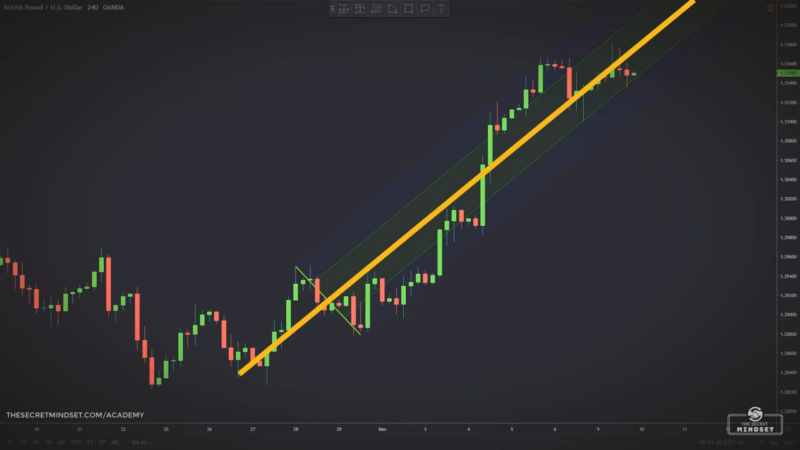Hi there! If you’re reading this, you’re probably as intrigued by Tesla as I am. It isn’t just a car company; it’s a symbol of innovation and a leader in the electric vehicle and clean energy industry. Whether you’re an investor, an analyst, or just someone curious about the future, understanding Tesla’s stock price predictions can be quite exciting.
I’ll take you through the significance of Tesla and why stock price predictions matter for people like you and me. So buckle up, and let’s dive into the world of electric vehicles and financial forecasts!
Overview of Tesla’s Performance in Recent Years

Tesla’s stock has been nothing short of a roller coaster ride in the past few years. From breaking records to facing unexpected downturns, it’s been an exciting journey. Here’s a quick look at how their stock has performed, highlighting some key milestones that have shaped its trajectory.
Remember when Tesla joined the S&P 500 in 2020? Or when it split its stock 5-for-1? These events, along with others like unveiling new models and expanding into new markets, have played a crucial role in influencing the stock price.
The stock price isn’t just about numbers; it’s a reflection of the company’s innovation, leadership, and ability to disrupt traditional markets.
Recent Performance:
- 2023: Tesla’s revenue for the quarter ending June 30, 2024, was $24.927 billion, a 47.2% increase year-over-year. The revenue for the twelve months ending June 30, 2024, was $94.028 billion, a 39.99% increase year-over-year.
- 2022: Tesla’s annual revenue for 2022 was $81.462 billion, a 51.35% increase from 2021.
- 2021: Tesla’s annual revenue for 2021 was $53.823 billion, a 70.67% increase from 2020.
- 2020: Tesla’s annual revenue for 2020 was $31.536 billion, a 28.31% increase from 2019.
Market Leadership:
One of the market leaders in battery-powered electric car sales in the United States, with roughly 70% market share. The company’s flagship Model 3 is the best-selling EV model in the United States. Tesla’s market capitalization crossed $1 trillion for the first time in October 2021.
Factors Affecting Tesla’s Stock Price

Electric Vehicle Market Trends
Tesla’s stock price is significantly influenced by the overall trends in the electric vehicle (EV) market. The company’s leading role in the EV revolution has garnered attention from investors and the general public alike. Bullish analysts believe that Tesla will continue to dominate the EV market, especially with record deliveries in the second quarter of 2024 and expected record sales in China. Bearish analysts, however, view the company as susceptible to competition, such as Chinese EV maker BYD, which is about to begin delivery of a direct rival to Tesla’s Model Y.
Financial Performance and Earnings Reports
Their financial performance has been a roller coaster, with the stock essentially going nowhere from 2014 to 2019, fluctuating at around $17 per share. However, starting in 2019, the stock began to grow, with its biggest year to date in 2020, when shares skyrocketed an astonishing 696.45%. The company’s earnings are forecasted to grow at 17.81% per year, faster than the US auto manufacturers’ industry average of 16.05%.
Regulatory Environment and Government Policies

Government policies and regulations play a vital role in Tesla’s stock price. The phase-out of internal combustion engines and incentives to produce e-vehicles can significantly impact Tesla’s market positioning. On the other hand, CEO Elon Musk’s controversial tweets and public comments have also affected the day-to-day movements of the companies stock.
Technological Advancements and Innovations
Their innovative product line, including the Model S, Model X, Model Y, Model 3, solar panels, and storage devices, has shaken up the entire automotive industry. The company’s technological advancements and focus on green energy fields have attracted investors and contributed to its stock price.
Competition in the Electric Vehicle Sector
Competition is heating up in the electric vehicle space, with companies like BYD entering the market. According to Tu Le, founder of the China-based advisory firm Sino Auto Insights, BYD’s media blitz points to their confidence in the product and their desire to keep pressure on incumbents like Tesla.
Methodology for Stock Price Prediction

Predicting stock price is a complex task, with analysts’ forecasts being more variable than nearly any other company in the S&P 500. The methodology involves considering various factors:
- Historical Performance: Analyzing Tesla’s past growth rate, including the astonishing 696.45% growth in 2020.
- Market Trends: Evaluating the electric vehicle market trends and Tesla’s role in the revolution.
- Financial Analysis: Assessing Tesla’s earnings growth forecast, revenue growth, and return on equity.
- Expert Opinions: Including insights from analysts like Dan Ives of Wedbush Securities, who commented on Tesla’s smart price cuts in China, and Ross Gerber, president and CEO of Gerber Kawasaki Inc., who spoke about Elon Musk’s focus on Tesla.
- Risks and Catalysts: Weighing the potential risks, such as competition, CEO’s other ventures like Twitter and SpaceX, and possible recession, against the catalysts like competitive pricing, dominance in the e-vehicle market, and rapid growth in other divisions.
Tesla Stock Price Prediction for 2024
The prediction for Tesla’s stock price in 2024 is filled with uncertainties and wide variations. The most bullish 12-month Tesla stock forecast stands at $335, while the most negative analyst sees shares dropping to $24.33 within 12 months, representing a 91% loss.
Potential Risks and Uncertainties
- High Prices of Tesla Cars: Even with government incentives, their cars are expensive for consumers, and they are also costly to manufacture.
- Battery Supply Issues: Tesla’s Gigafactory is still under construction, and there are concerns about whether it will be completed on time and if one factory will be enough to meet demand.
- Impact of Low Gas Prices: Declining gas prices make gasoline-powered cars more economically attractive, potentially affecting Tesla’s sales.
- Increased Electric Vehicle Competition: With companies like Chevrolet, Nissan, Mercedes-Benz, Volkswagen, Subaru, Ford, and BMW planning to enter the electric car market, Tesla’s market share may start to get crowded.
- Capital Expenditures: Tesla has spent billions on development, and there are concerns about whether the company will recoup these massive expenditures.
- Controversial CEO: Elon Musk’s behavior and involvement in other ventures could pose risks to the company.
Bullish Perspective

Analysts in the bullish camp believe that Tesla will continue to lead in the electric vehicle market, with record deliveries and sales, especially in China. The company’s focus on green energy fields and competitive pricing is expected to drive growth.
Bearish Perspective
On the other hand, bearish analysts feel that the company may fail to live up to expectations and become overvalued and overly subsidized. The growing competition and potential recession could also impact the stock price negatively.
Average Prediction
The average 12-month stock price prediction for Tesla is $209.81, a decrease from its current price. The price forecast for 2024 places a high estimate of $209.81, with a low of $24.33, according to CNN.
Conclusion for 2024
The future of Tesla’s stock in 2024 seems to be a big question mark, with analysts unable to agree on whether it will be a big win or a significant loss. The stock’s performance will likely depend on various factors, including market trends, financial performance, technological advancements, and competition.
Overview of Tesla’s Performance in Recent Years

- Steady Growth: Tesla’s revenue has seen a consistent increase over the years, reflecting the company’s expansion and growing market share in the electric vehicle industry.
Recent Performance:
- 2023: Tesla’s revenue for the quarter ending June 30, 2024, was $24.927 billion, a 47.2% increase year-over-year. The revenue for the twelve months ending June 30, 2024, was $94.028 billion, a 39.99% increase year-over-year.
- 2022: Tesla’s annual revenue for 2022 was $81.462 billion, a 51.35% increase from 2021.
- 2021: Tesla’s annual revenue for 2021 was $53.823 billion, a 70.67% increase from 2020.
- 2020: Tesla’s annual revenue for 2020 was $31.536 billion, a 28.31% increase from 2019.
Market Leadership: The market leader in battery-powered electric car sales in the United States, with roughly 70% market share. The company’s flagship Model 3 is the best-selling EV model in the United States. Tesla’s market capitalization crossed $1 trillion for the first time in October 2021.
Tesla Stock Price Prediction for 2025
Performance Decline in 2022
Tesla’s stock has seen a significant decline of 40% in 2022, primarily due to a decrease in demand for Tesla’s cars in China and a 9% decline in vehicle prices. Additionally, 54,000 cars were withdrawn due to software glitches.
Optimistic Future
Despite setbacks, major brokerage houses like Credit Suisse, Canaccord Genuity, and Oppenheimer remain bullish on Tesla’s future, predicting EPS growth.
Factors Influencing Future Stock Price
Several factors could influence Tesla’s stock price in 2025, including market demand for electric vehicles, competition in the EV market, technological advancements, economic conditions, leadership, interest rates, and stock market trends.
2025 Prediction

Barclays and JP Morgan have given a Tesla stock price prediction for 2025 with a rise of 170%, reaching $480 to $535. This prediction is based on the assumption that the world will continue to move toward electronic vehicles.
Potential Risks and Uncertainties
- Competition in the EV Market: Tesla faces potential threats from big companies like BMW and Renault. If these companies can manufacture well-designed EV cars at lower prices, Tesla’s sales may see a decline.
- Technological Advancements: Tesla’s ability to continue developing and implementing cutting-edge technology will play a significant role in its future stock price.
- Economic Conditions: Macroeconomic conditions, interest rates, and stock market trends can significantly sway Tesla’s stock price.
- Leadership: Elon Musk’s ability to manage his responsibilities effectively across Tesla, SpaceX, and Twitter will play a crucial role in Tesla’s future.
2030 Insights
Tesla’s Growth Potential
Tesla’s aggressive growth plans could see it rivaling the largest automakers in the world by 2030. The company’s focus on innovation, production ramp-up, and battery technology puts it in a strong position to achieve these goals.
Challenges Ahead
The ambitious target of selling 10 million cars by 2030 requires significant expansion in production capacity. The availability of batteries and increasing competition from legacy automakers rolling out electric versions could be significant hurdles.
Electric Vehicle Market
With the global number of electric vehicles expected to rise dramatically by 2030, Tesla’s brand image and product features could help it capture a significant share of this growth. However, it must continue to innovate and overcome production challenges to maintain its leadership position.
FAQ
What is Tesla, Inc.?
An American multinational automotive and clean energy company that designs and manufactures electric vehicles, stationary battery energy storage devices, solar panels, and solar roof tiles.
Who founded Tesla, Inc.?
Incorporated in July 2003 by Martin Eberhard and Marc Tarpenning. Elon Musk became the company’s largest shareholder in February 2004.
What are Tesla’s main products?
Main products include electric vehicles (Model S, Model X, Model 3, Model Y, and Tesla Semi), Powerwall, Powerpack, Megapack, Solar Panels, and Solar Roof.
Where is Tesla’s headquarters located?
Gigafactory Texas, in Austin, Texas, U.S.
How many employees does Tesla have?
As of 2022, the company has 127,855 employees.
What is Tesla’s market capitalization?
In October 2021, Tesla’s market capitalization reached $1 trillion, making it the sixth company to do so in U.S. history.
What is the Tesla Cybertruck?
The Cybertruck is a pickup truck unveiled in November 2019, with deliveries planned to begin by the end of Q3 2024.
How does Tesla contribute to renewable energy?
Their mission is to expedite the move to sustainable transport and energy through electric vehicles and solar power. They are also one of the largest global suppliers of battery energy storage systems.
What controversies has Tesla faced?
They has been subject to lawsuits, government scrutiny, and criticism stemming from allegations of whistleblower retaliation, worker rights violations, product defects, and controversial statements by Elon Musk.
What is Tesla’s future plan?
Future plans include the production of the Cybertruck, a second-generation Roadster, a Gigafactory in Monterrey, Mexico, and the expansion of its electric vehicle and clean energy products.
Conclusion
Tesla, Inc. stands as a pioneering force in the automotive and renewable energy industry. With its innovative electric vehicles, energy storage systems, and solar products, Tesla has reshaped the way the world views sustainable transportation.
Despite facing controversies and challenges, the company continues to grow, reaching significant milestones such as a $1 trillion market capitalization. Tesla’s commitment to sustainability, technological advancement, and global expansion ensures its position as a leader in the clean energy revolution.
